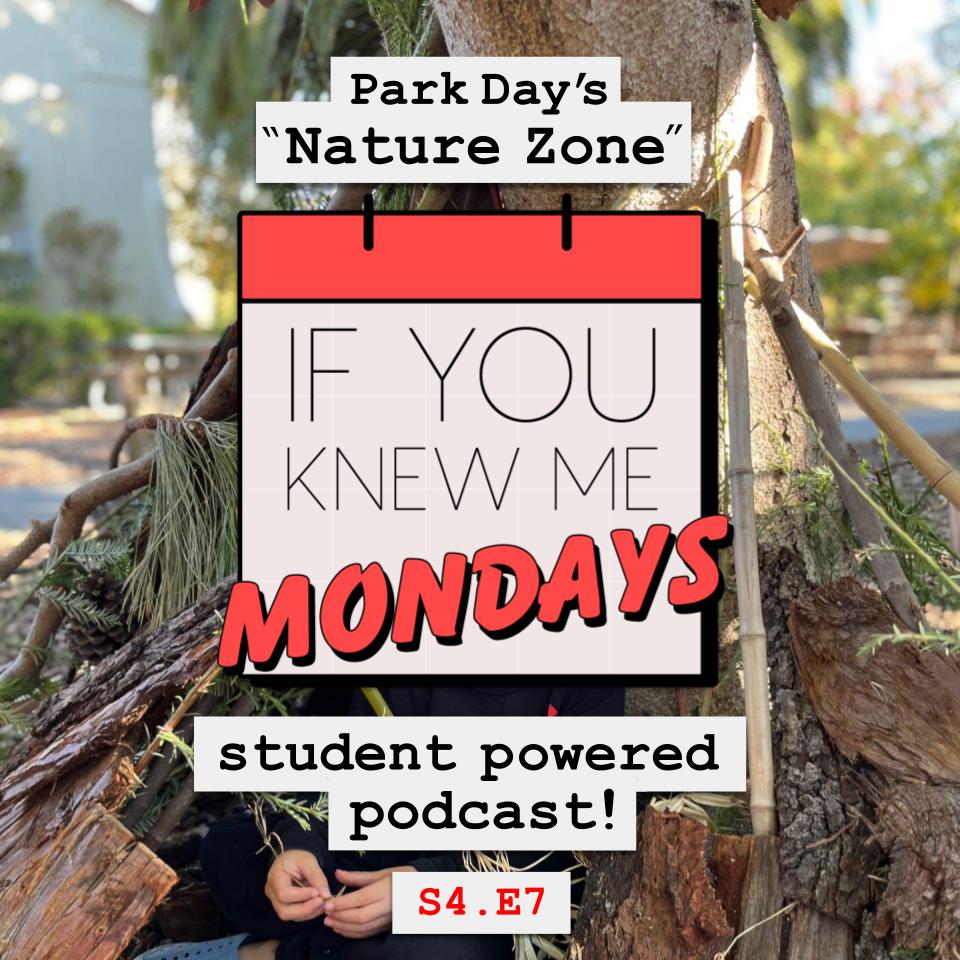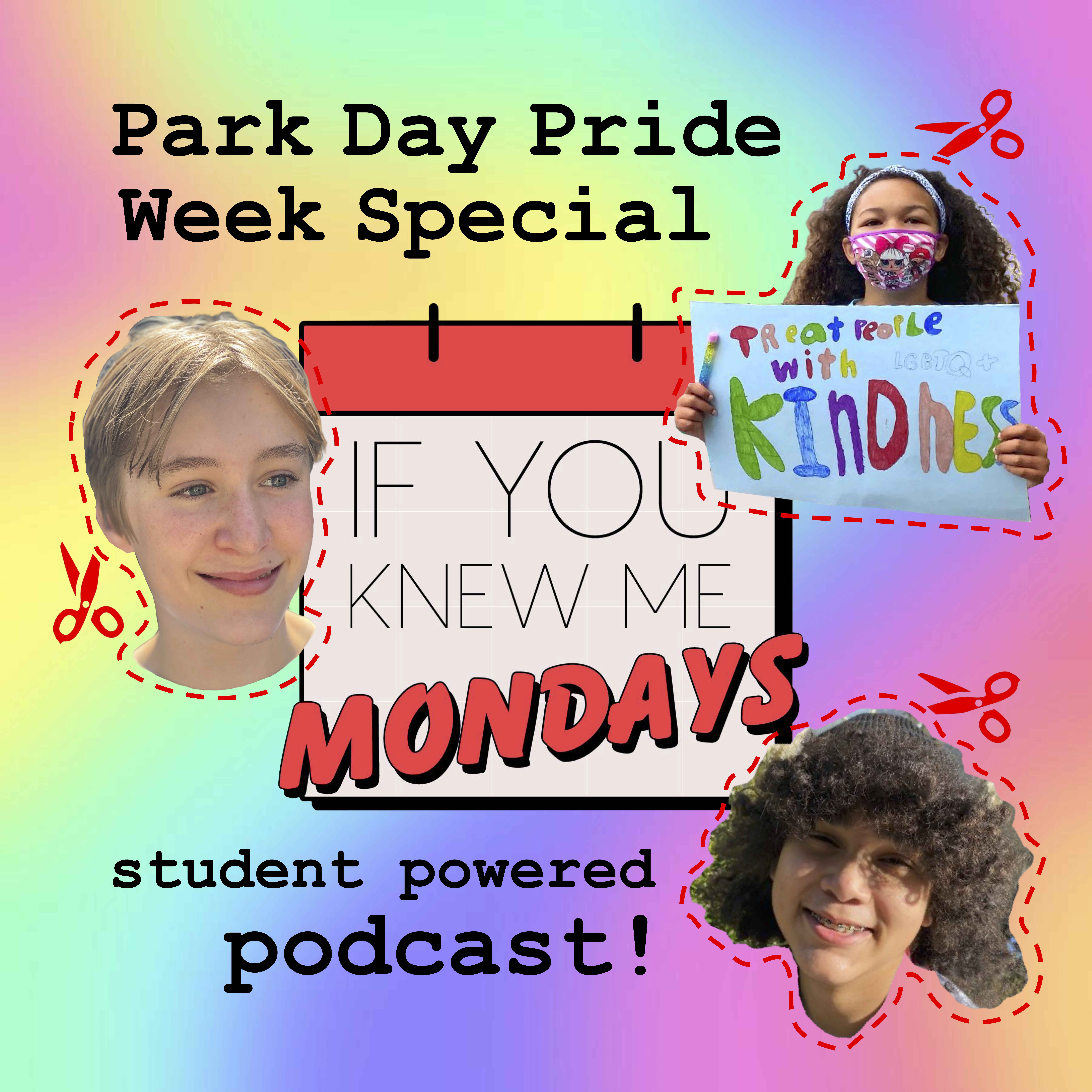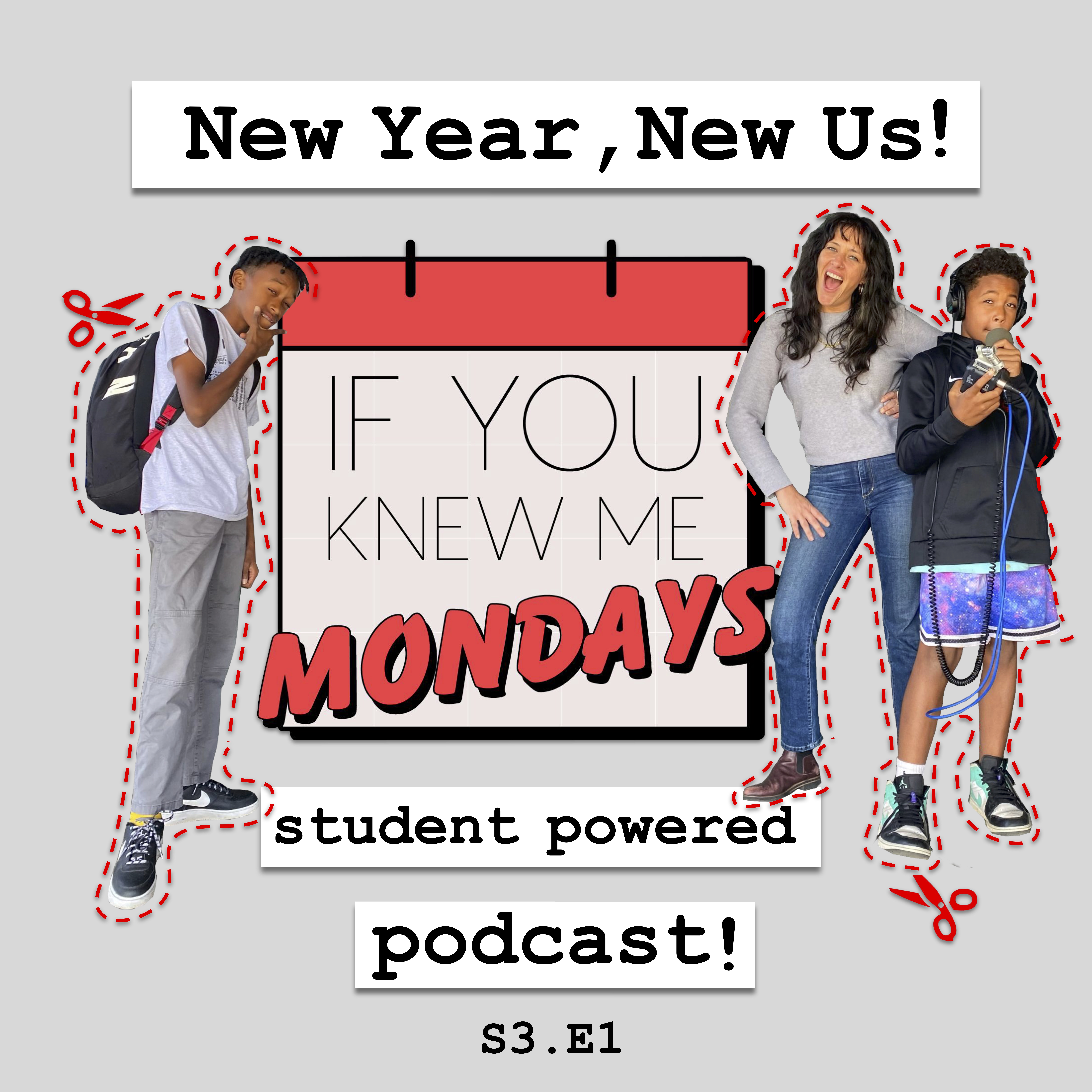Episode Transcript
[00:00:00] Speaker A: Hi, it's Lila here. And if you really knew me, you know that I'm Jewish, creative and love.
[00:00:06] Speaker B: Art and I'm Hannah. And if you really knew me, you'd know that I love nature and animals and I really want a dog.
Our Black Panther study lasted over seven weeks. During that time, we read books, conducted research online, and had many class discussions about who the Panthers were, what they stood for, and and their relevance in our world today.
We learned about their incredible 10 point program, which was the group's main declaration of their ideas and values.
[00:00:37] Speaker A: Here's Black Panther co founder Bobby Seal.
[00:00:42] Speaker C: When we first organized the Black Panther Party for self defense, he would say, bobby, he says, we're going to draw up a basic platform, just basic, that black people can read. It's just a basic platform that the mothers who struggle hard to raise us, that the fathers who worked hard, that the young brothers in school who come out of school semi illiterate. Hughes say, we want freedom. We want power to determine the destiny of our black community.
Now, out of this platform, Huey P. Newton realized that it was necessary for us to start working on these points.
These 10 points, practically, is very, very important.
And here, whether you know it or not, is where you start dealing with the black revolution.
[00:01:31] Speaker B: Every action I took, from starting schools and free breakfast programs to protecting the community from brutal police violence connects to the 10 point program.
[00:01:43] Speaker A: Every powerful point they made speaks directly to the needs of the black community in American history, and they're all just as relevant today.
[00:01:57] Speaker B: One of the points that I personally connect with is number 10. We want land, we want bread, we want housing, education, clothing, justice and peace.
I connect with this because of the war that's happening in Ukraine right now. I care about the people there, and all of these things are being taken from them. Ukraine should not have to live with violence. Yeah, same here.
[00:02:28] Speaker A: I agree and have lots of sympathy for the Ukrainian people.
For me, I connect a lot with number seven. We want an immediate end to police brutality and murder of black people.
I connect with this because police have no reason to hurt people because they are different or don't have as much power.
And I connected with point 4. We want decent housing fit for the shelter of human beings, because everyone deserves to have decent housing and shelter.
[00:03:00] Speaker B: One thing you should know is that the Ten Point Program wasn't just a bunch of words listed out on paper. Members of the Black Panther Party memorized those words by heart and turned them into actions in their lives and community.
They did this in so many different ways. For example, let's focus on point number five. We want education for our people that exposes the true nature of this decadent American society. We want education that teaches us our true history and our role in the present day society.
[00:03:30] Speaker C: Because if they don't know their place in society and in the world, they can't relate to anything else.
[00:03:35] Speaker A: Basically, what they're saying is everyone deserves a good education.
Just because someone is black or doesn't have a lot of money, they should still have access to good schools, teachers, and real history that reflects them.
[00:03:50] Speaker B: The Black Panthers didn't wait around for others to give them the schools they deserved. Instead, they made their own. The Oakland Community School is a perfect example of how the Panthers helped educate the future generations about the struggles for justice of black and oppressed people around the world.
We were lucky enough to have one of our field reporters. Lou got a chance to talk with the Black Panther Party leader, Erica Huggins. She was the director of the Oakland Community School as well as a lot of other Black Panther projects. And here's what she shared.
[00:04:24] Speaker A: Can you say your name and introduce yourself?
[00:04:28] Speaker D: My name is Erica Huggins and I live in Oakland. I live in a great neighborhood and I have wonderful neighbors, of which Louis won.
And I used to be a teacher and then I was a professor, and now I'm a facilitator. That means that I help people have conversations that are important, whatever they're about. Sometimes you need somebody to help keep the conversation going smoothly.
So that's what I do.
And I have three grown children and two grandsons. Is that enough?
[00:05:07] Speaker B: Yes.
[00:05:07] Speaker D: Okay.
[00:05:09] Speaker A: What was the goal of the Oakland Community School?
[00:05:12] Speaker D: Well, the Oakland Community School was conceived by the Black Panther Party, and in the 10 point program, point 5 is all about the need for a decent education for people so that we know, so that black people can and people of color know their place, their history and their place in this society.
So the school is about that kind of education where children can learn how to think, not what to think, so that children have all of their needs met so they're not hungry or too tired or being talked to in a disrespectful manner. We wanted a school that had an environment full of love.
And so that's what we did. Do you want to know how we did it?
[00:06:03] Speaker A: Yeah.
[00:06:03] Speaker D: We thought about all the things we as black and brown children didn't have.
It was a long list of things we didn't have. We didn't get stuck on that. We just thought about it. Why don't we just turn this list around and make it so that people have all these things. Not just the students or the staff or the teachers, but also the parents.
Because when we were in public school and our moms or dads showed up, they were not welcomed. They were considered an annoyance, an intrusion.
Some things have changed, but that parent friendly part hasn't changed everywhere.
And we wish it would. Because why parents are your first teachers, Isn't that true?
Everybody's parents are their first teachers.
[00:07:00] Speaker A: How did you work with the school impact the community and you personally?
[00:07:07] Speaker D: That is a great question.
And the Birds like that question too.
And how did the school impact the community in a huge way.
So much so that we opened the doors with 50 children in East Oakland in September of 1973.
And without doing anything except saying, we're open, parents came from everywhere wanting to have their children be a part of the school. Now the building wasn't big, it could only hold 150 students.
But I want to assure you the impact was so great because we served three meals a day, we had exercise, we were parent friendly. As I said, we were tuition free.
Tuition free. Think about that.
Nobody had to pay money to to be at Oakland Community School.
And we loved all the children, no matter what they looked like, who their parents were.
So word got around and within a month we had 150 children without really doing any promotion or anything.
And we always had unborn children on our waiting list. And so this impacted me personally because my daughter and my older son were also in the school.
So I felt really comfortable that they got a quality education that honored them as African American children and allowed them to express themselves in the way that every child should express.
[00:08:59] Speaker A: What has been the lasting legacy of the Oakland Community School?
[00:09:06] Speaker D: Another great question. Thank you, Lou. The lasting legacy of the Oakland Community School that we did what we did and we didn't have lots of degrees or millions of dollars or notoriety from some very, very, very important people somewhere in the world.
We were just these young people who believed in children and believed in our ability and love to change the world.
So the school is just one of 64 community programs that the Black Panther Party created. It was the flagship program and it lasted the longest. It was only in Oakland.
But the lasting legacy of it is that every single program the Black Panther Party started, from the free Breakfast for Children program to the free clinics, sickle cell, anem testing, free ambulance program, free clothing and shoes program, all of these programs, including the Liberation Schools and Oakland Community School across the country and around the world, could be Replicated. That's a big word, isn't it?
I'll tell you what it means. It means that Eric and a whole bunch of people opened up the doors to Oakland Community School.
But if you, Lou, were old enough to open a school, you could and just do what we did, and it would work.
Even if you spoke another language, even if you lived in another country, it doesn't really matter, because all children deserve quality education.
We throw that term quality around, but really the highest quality is to respect each human being as already brilliant, already good, already beautiful.
So thank you for your questions.
[00:11:10] Speaker B: Thank you for having the time to answer the questions, and we really appreciate it.
[00:11:19] Speaker D: Thank you. It's an honor to do it, and it's an honor to talk to you and be with you on this bright, sunny day.
So many years from Oakland Community School.
[00:11:33] Speaker B: Wow. Erica Huggins is so full of knowledge and history. And how cool is it that Lou is her neighbor?
[00:11:40] Speaker A: Yeah, we're really lucky that Lou had a chance to talk with her. And now we can share this with everyone.
[00:11:48] Speaker B: It's kind of crazy to think that students didn't learn about black history years ago. Black history is such an important part of our country's history and world history. It's impossible to imagine what our lives would be like without the countless contributions of black people throughout history.
[00:12:05] Speaker A: Yeah. And what's even crazier is that still today, there are schools and some places that continue to not understand this.
[00:12:14] Speaker B: If you want to learn more about the Oakland Community School in Erica Huggins or want to see pictures from Lou's interview, check out this episode's Padlet.


